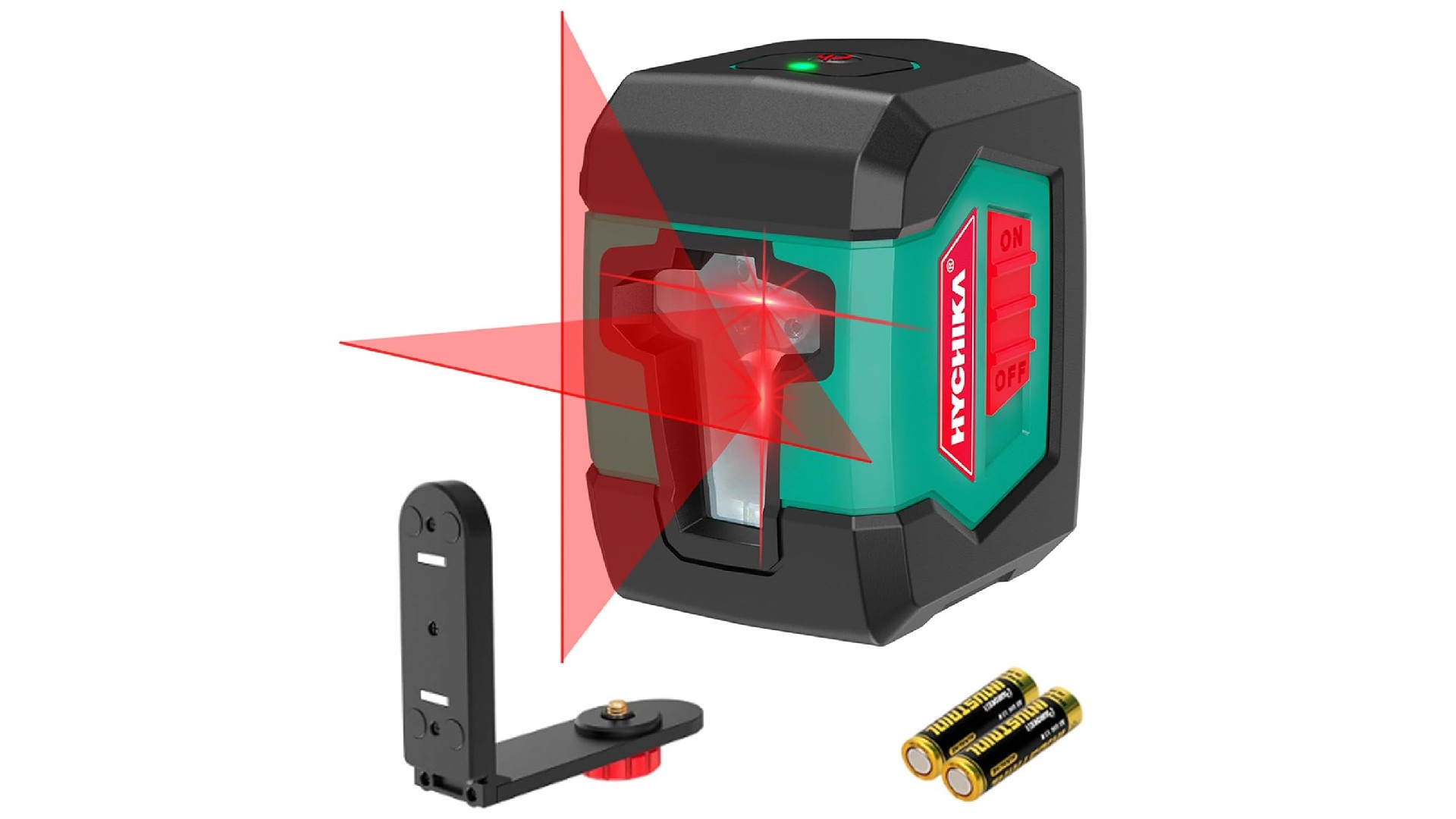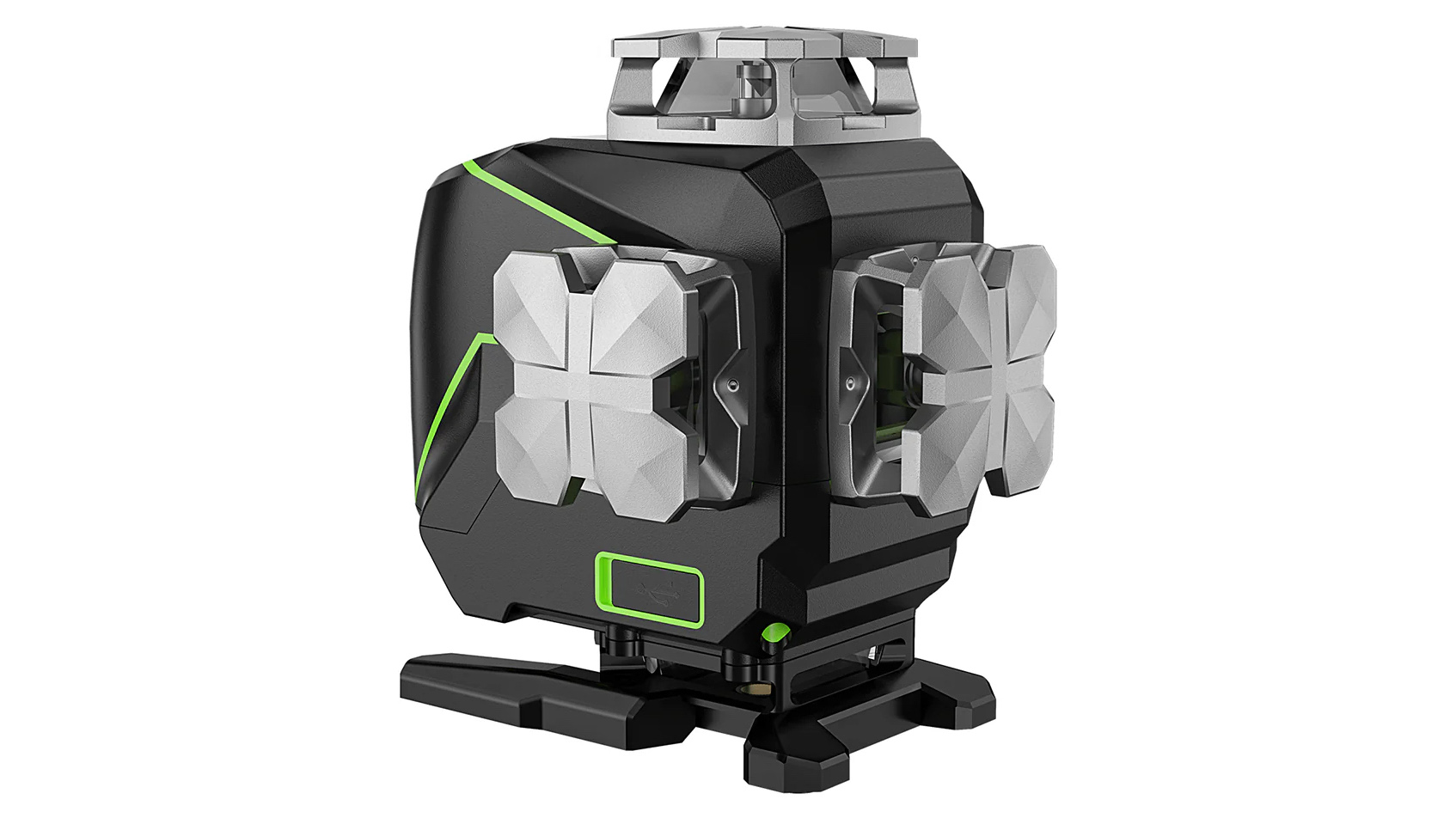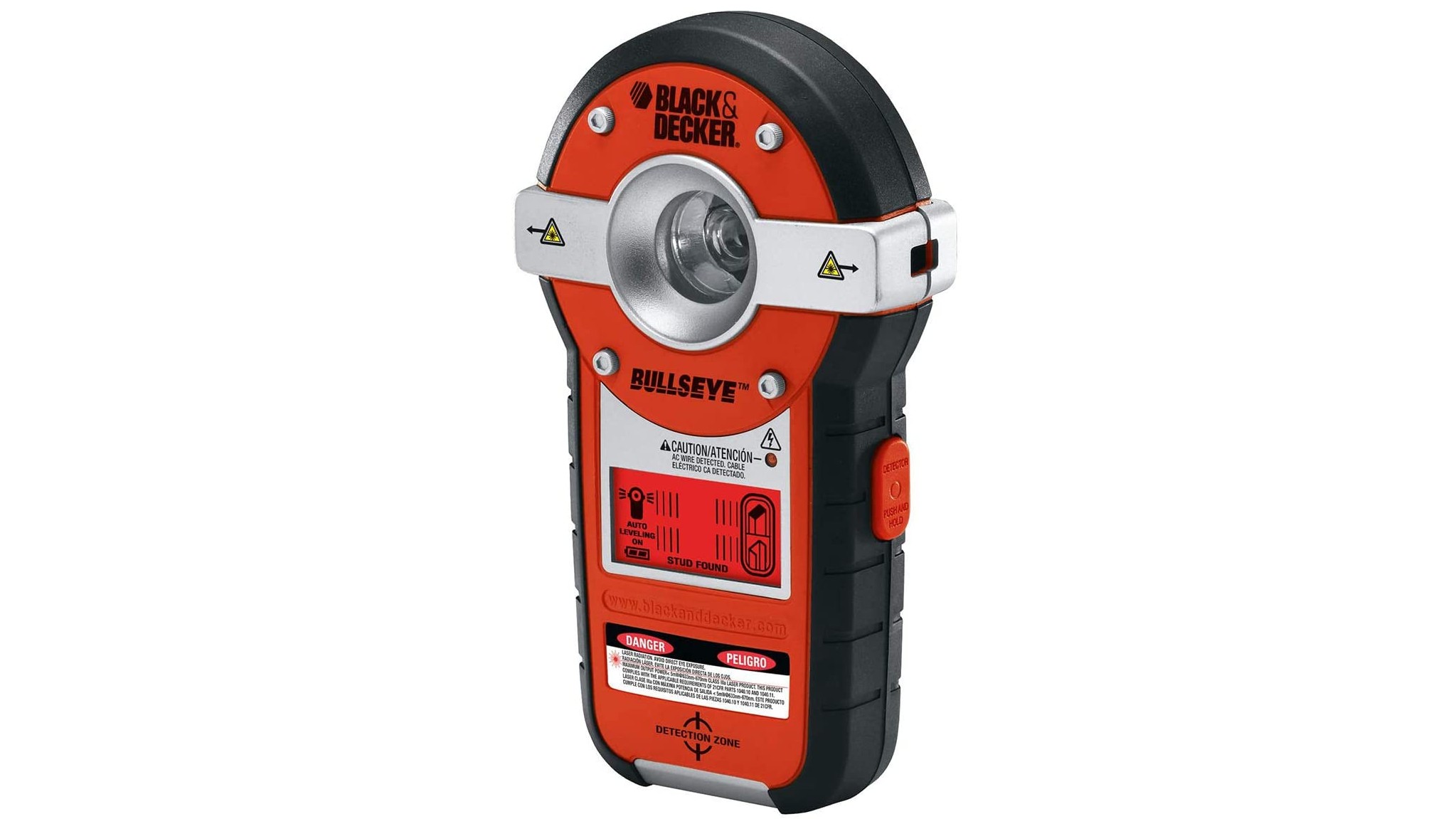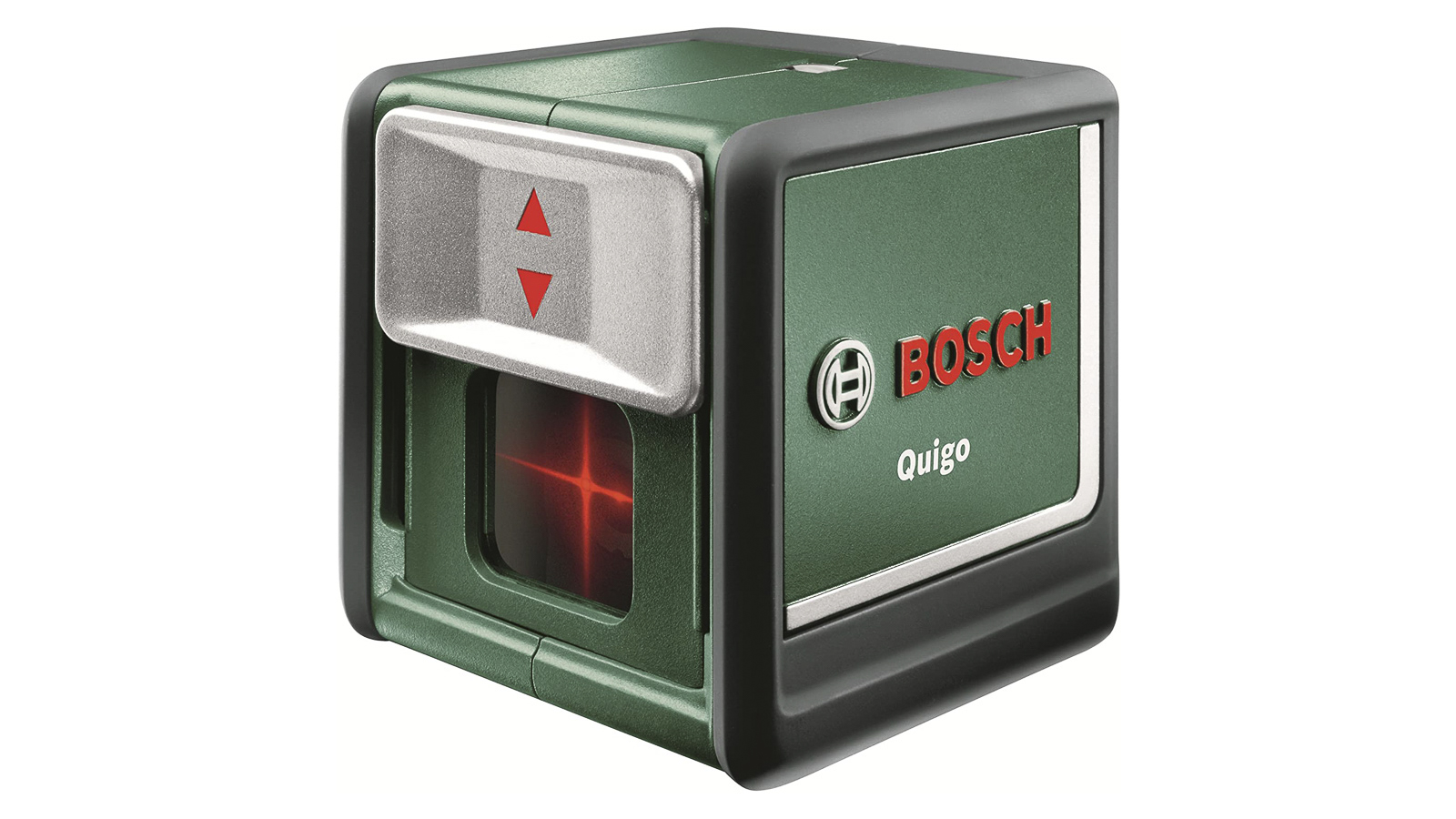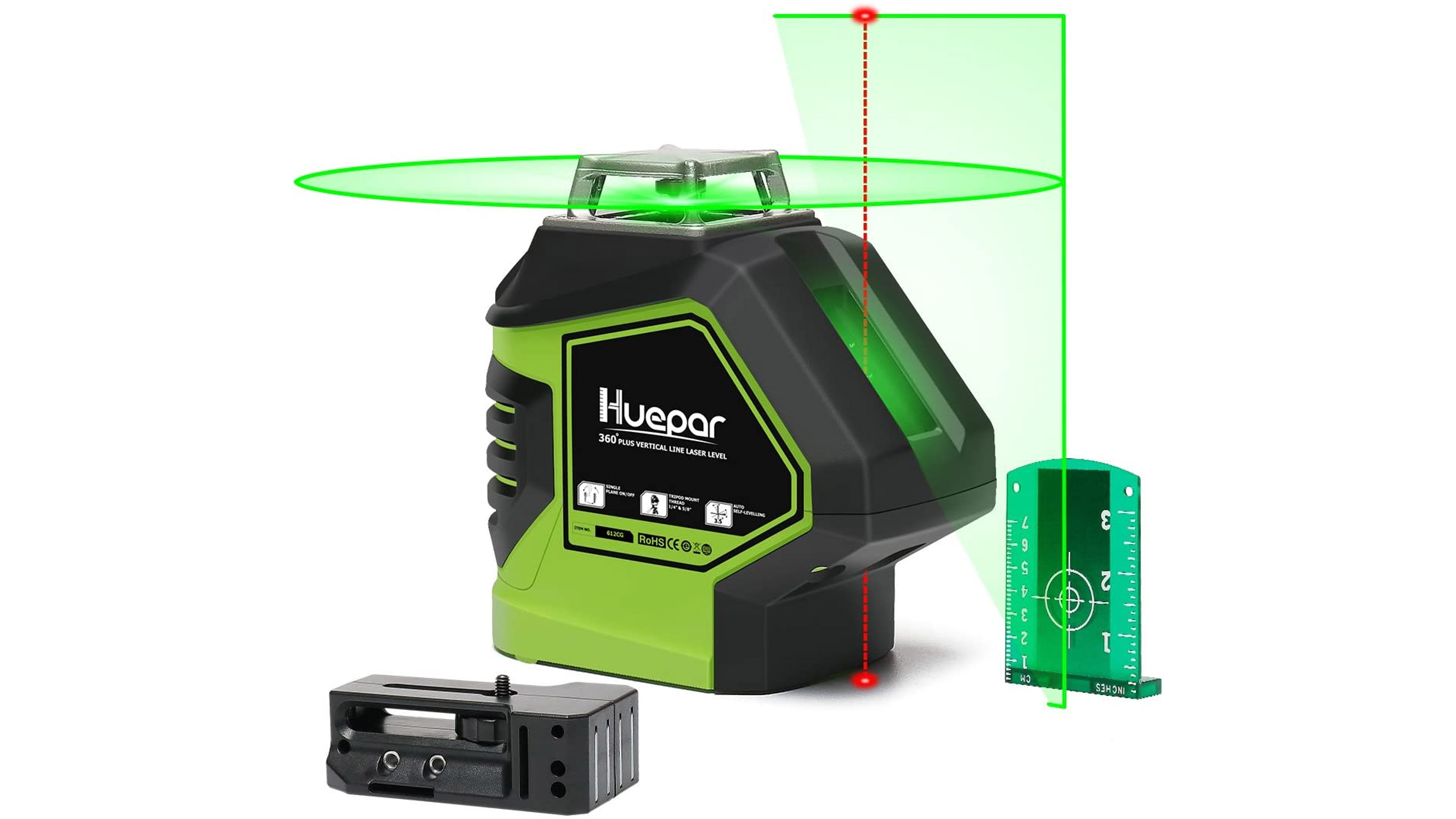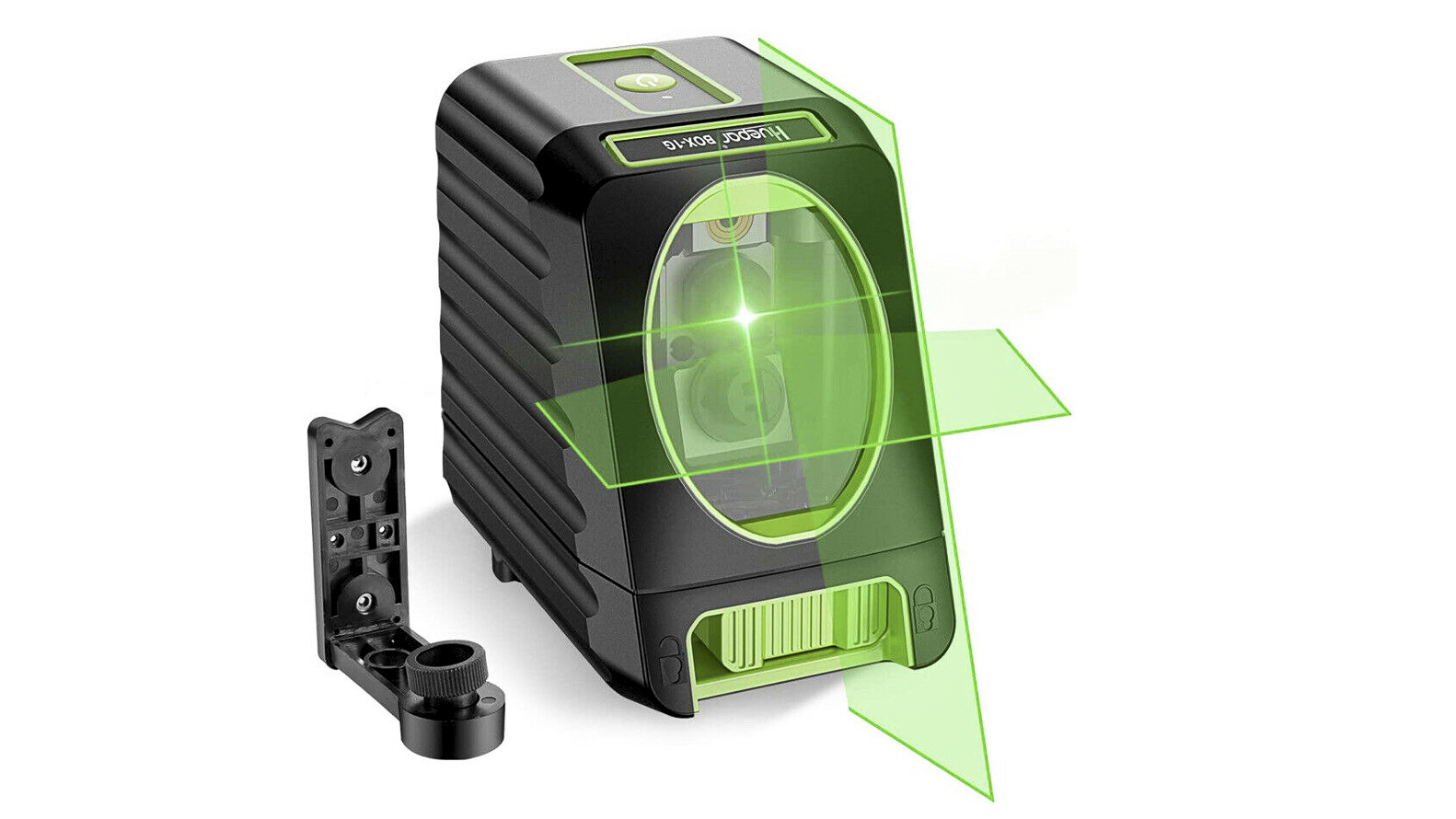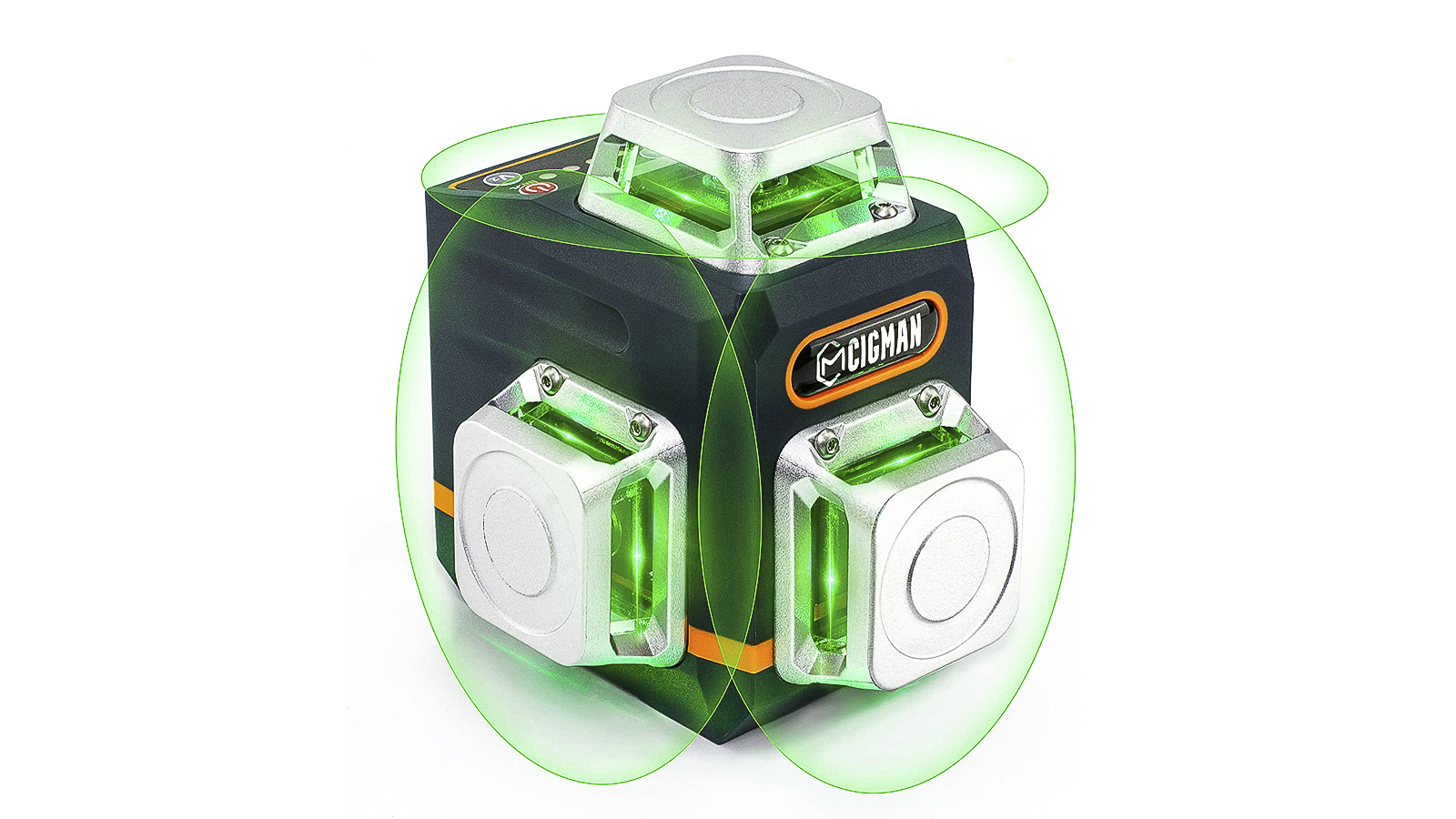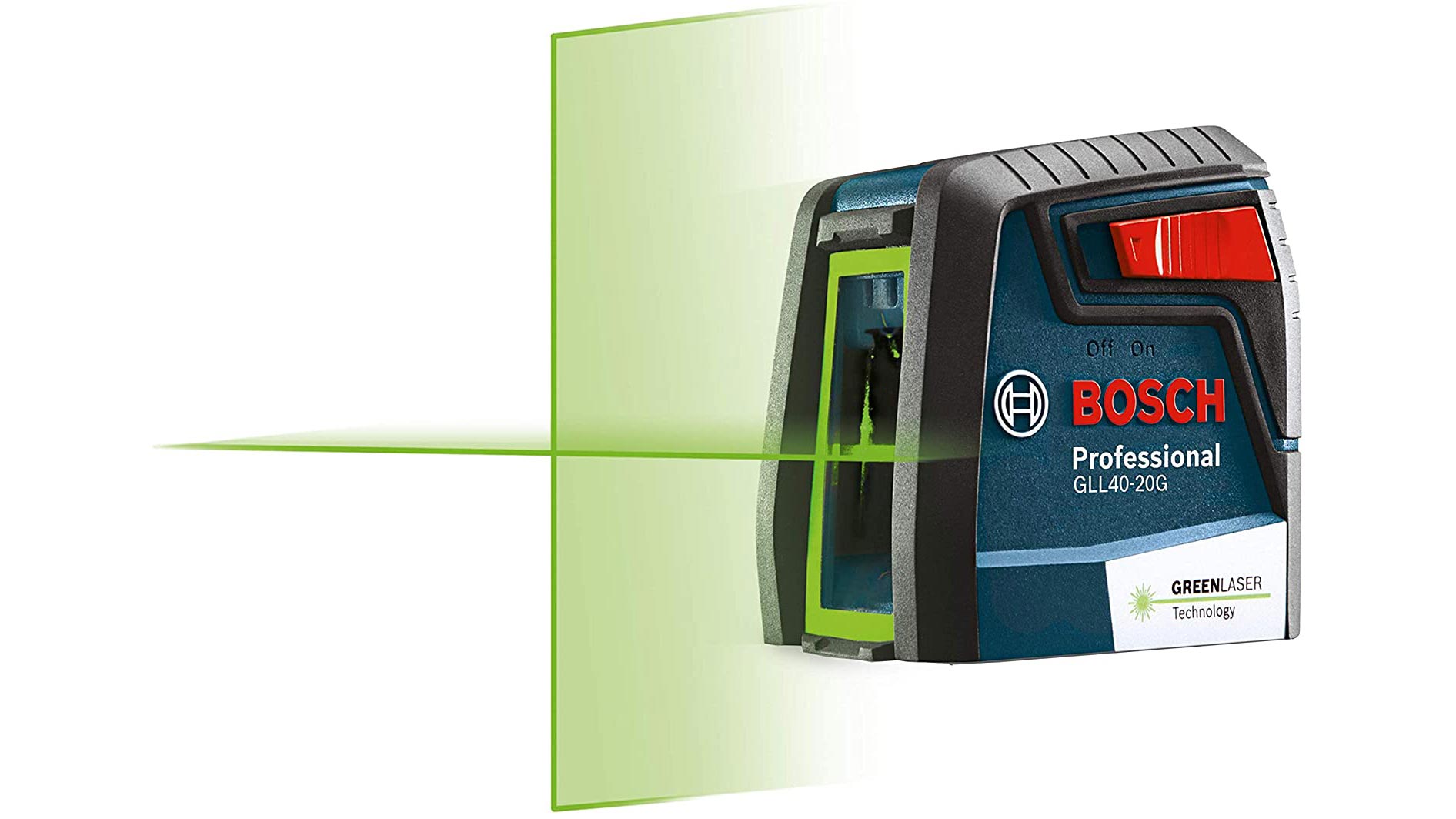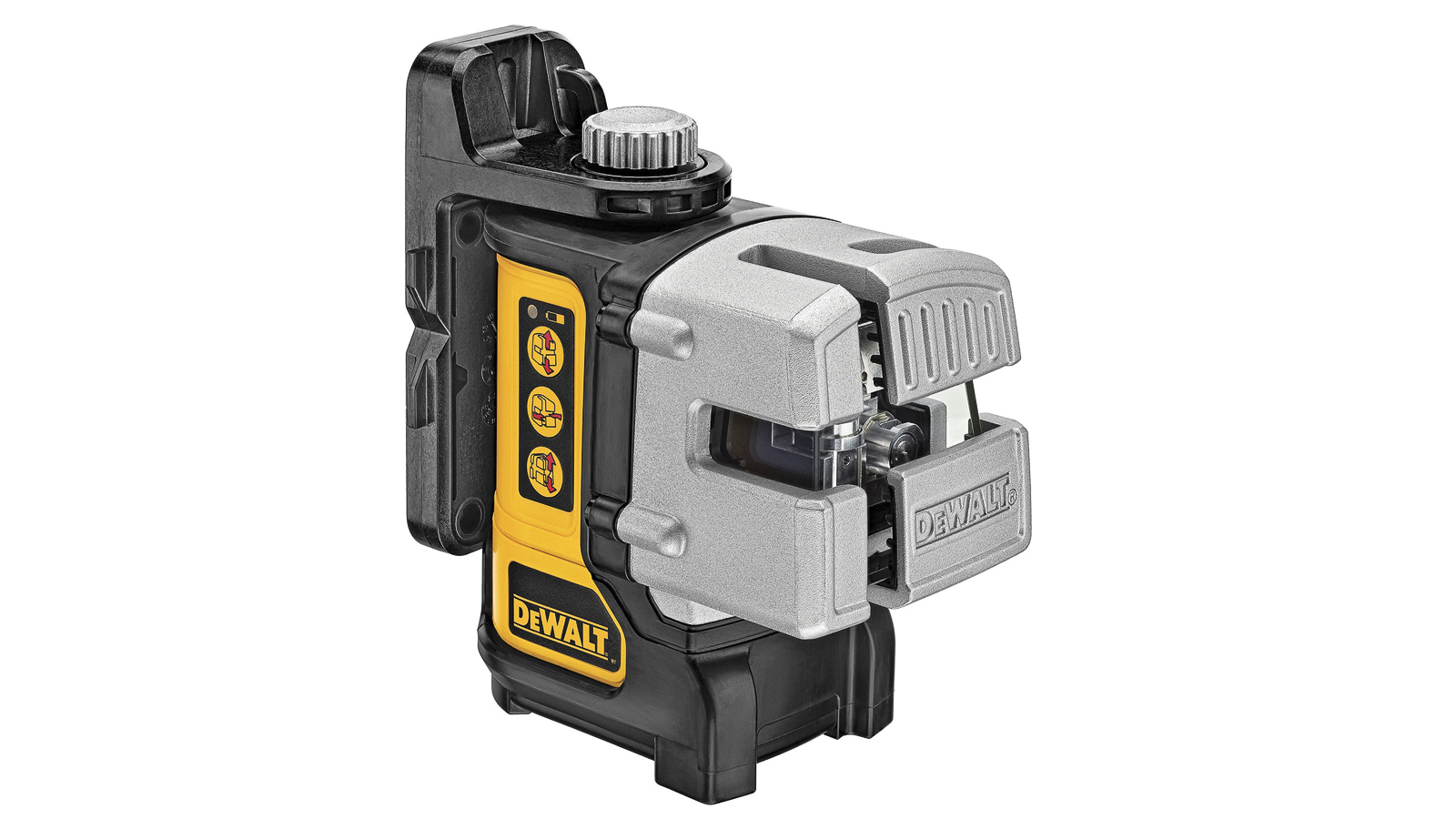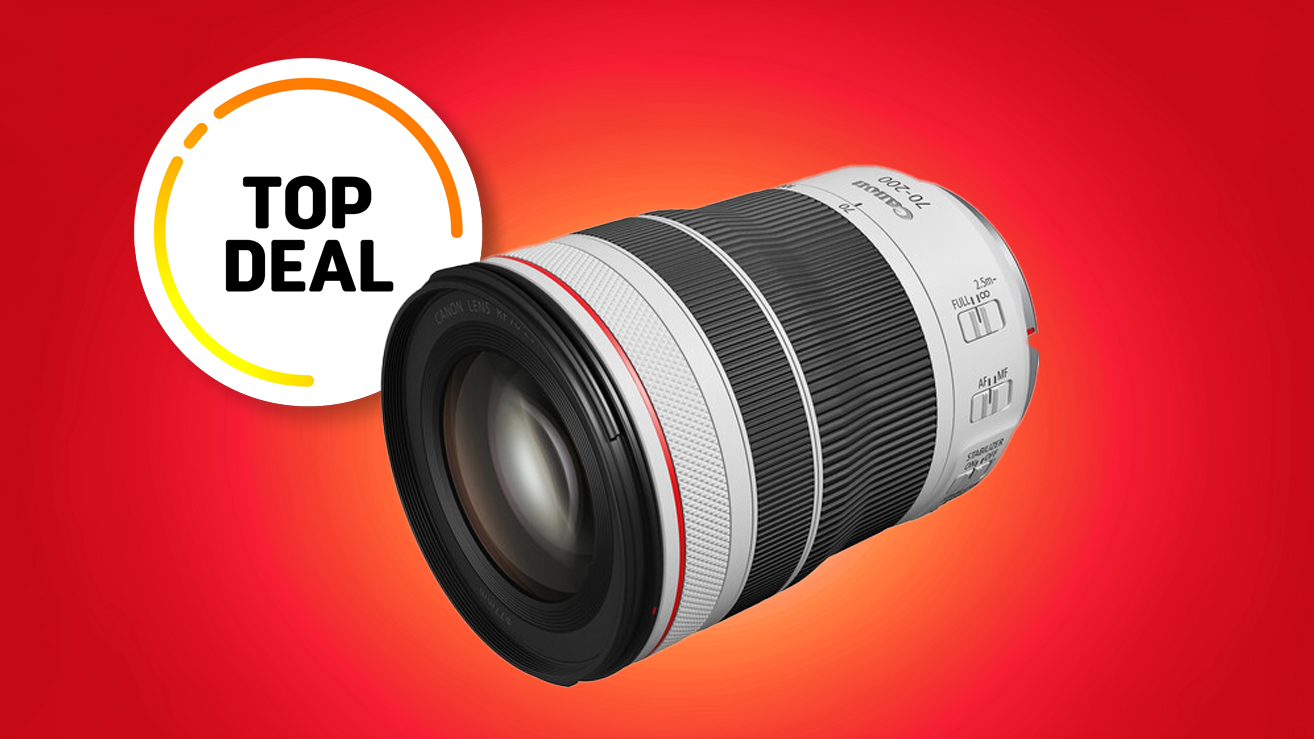The best laser levels for DIY and construction
Handy for everything from hanging a picture to building a house, the best laser levels are so much easier than traditional spirit levels
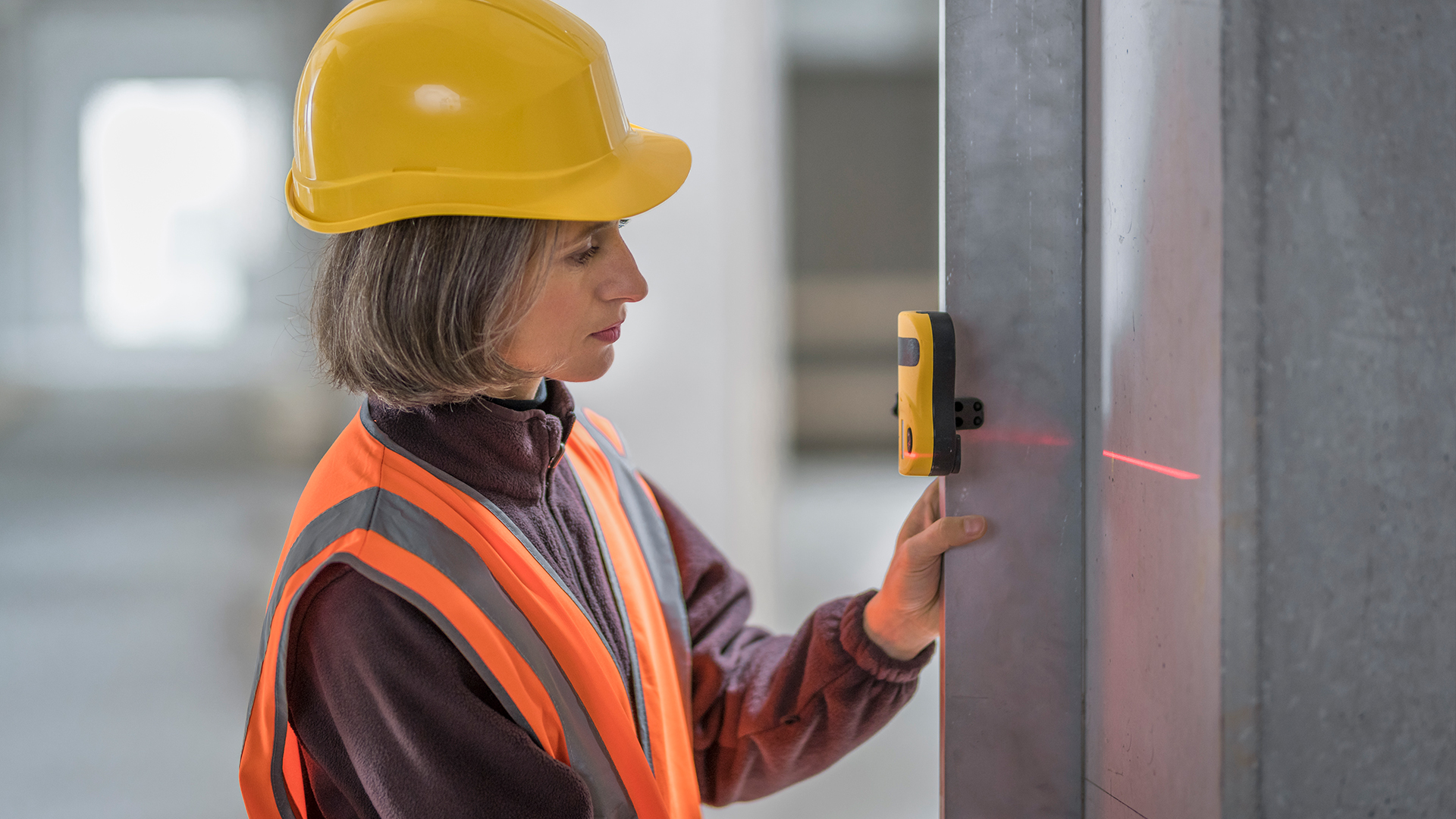
The best laser levels are super-useful devices, whether you're hanging a picture frame or working on a construction site. Even photographers find them handy, for working on things like composition during a photoshoots. They're much easier to use than traditional spirit levels, and some have them have extra features to make your work faster, more efficient and more accurate too.
To help you find the right one, we've evaluated various models' specs, features, and customer reviews to recommend the best for different needs. And whatever you're looking for, you're sure to find the perfect choice for you below. Our selection of the best laser levels includes manual and auto-leveling models with varying brightness levels, builds, and functions; from basic single-line levels to cross-line and 3/4-axis levels that simplify multi-person jobs.
Finally, for guidance on choosing a laser level or understanding how they work, refer to the FAQs at the end of this guide.

Tom May has more than 20 years of experience in renovating properties the length and breadth of England (plus bits of Wales). He's allergic to hard work and long hours, so he's always keen to use devices that can save him time and effort when it comes to the boring and mundane side of DIY.
The quick list
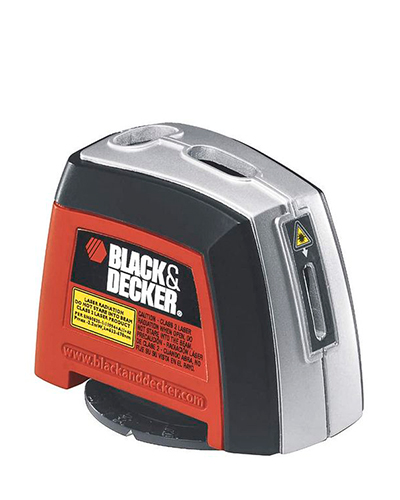
We think this simple and relatively cheap laser level is the best option for most everyday home DIY tasks. The range is short but it does the job for pictures, mirrors, curtain rails, and other décor.
Read more below ↓
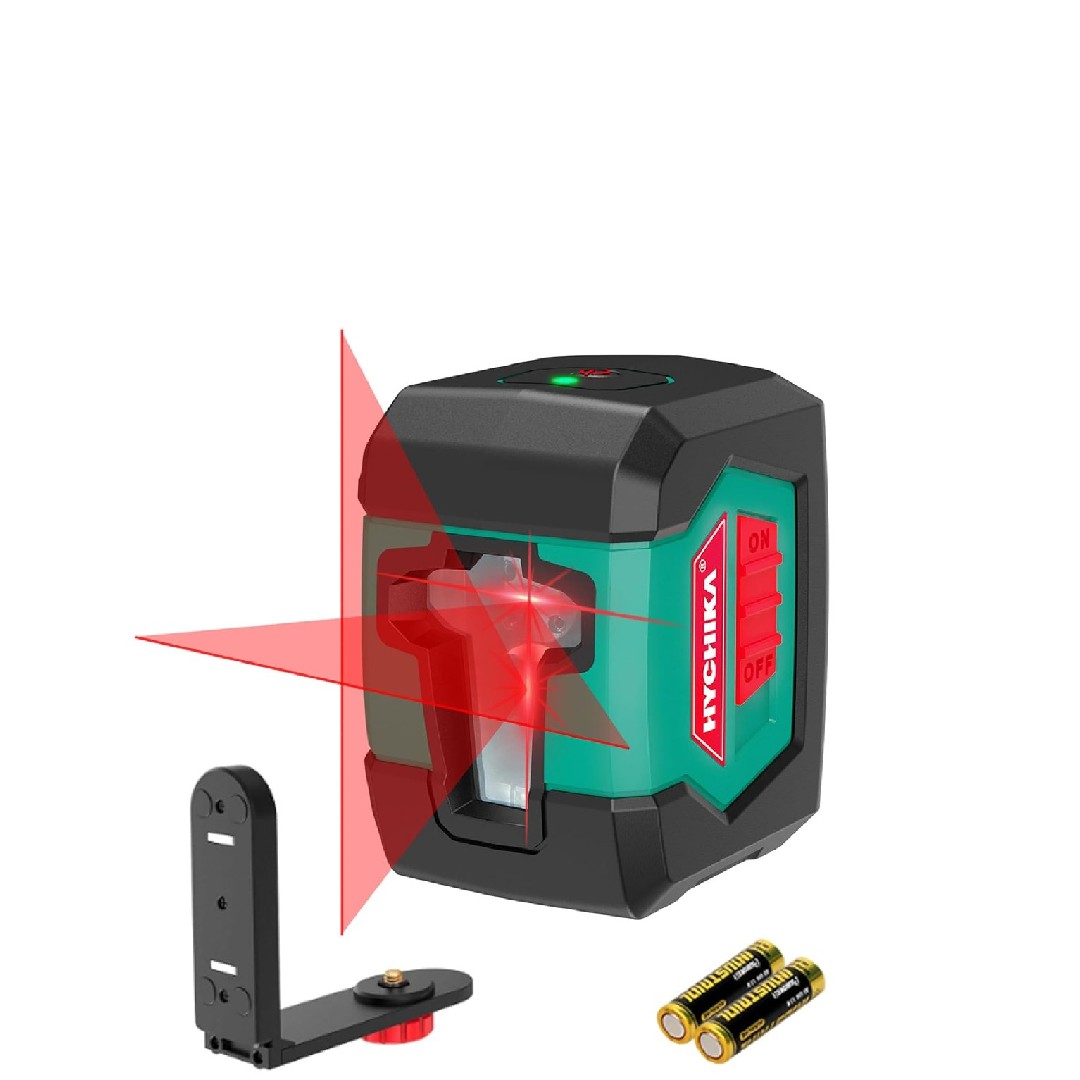
The Hychika laser level self-levels within 4 degrees and has over 20 hours of battery life. And while it's not quite as accurate as pricier models, it's certainly light enough for light DIY tasks like hanging shelves.
Read more below ↓
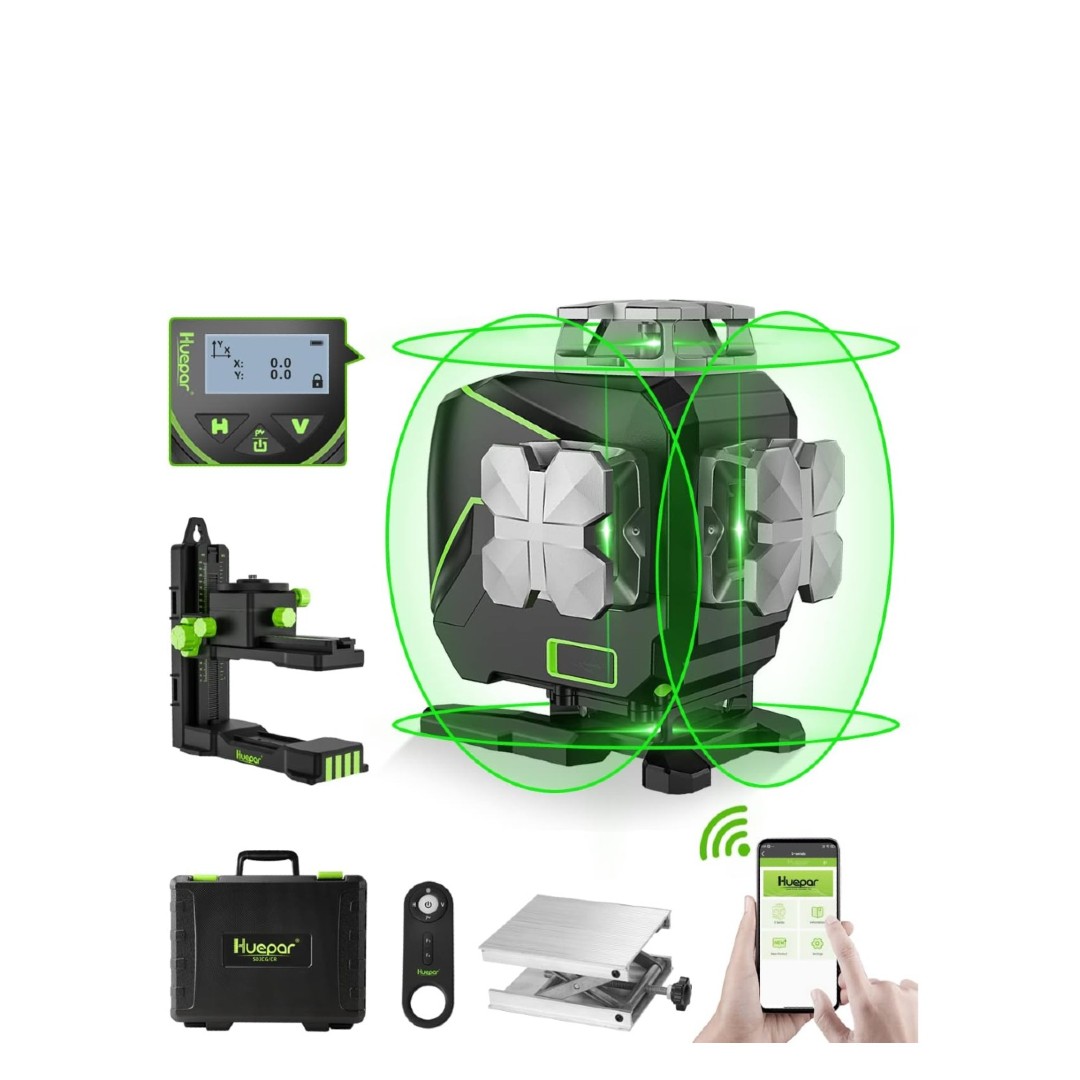
This multifunctional laser level boasts four 360-degree laser lines and it's super-flexible.For example, it can be powered by either lithium-ions or AAs, and there's a remote control and app to control it.
Read more below ↓
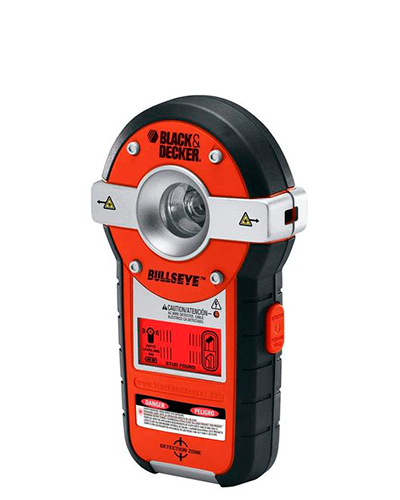
If you want to hang pictures but aren't sure what's behind your walls, this laser level can help. It includes a stud finder to help avoid wood or metal studs, or live A/C wiring.
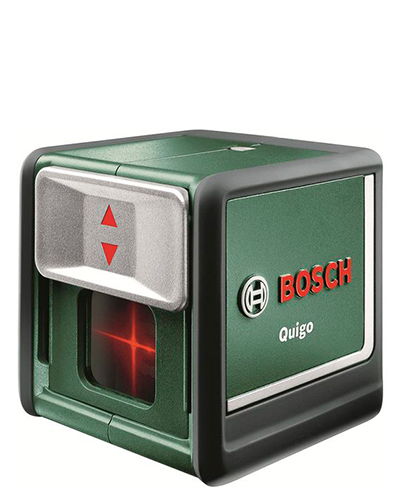
We love the quirky cube-like design of this cross-line laser level. Its handy adjustable clamp makes it an excellent tool for DIYers who need both a vertical line and horizontal line to guide right angles.
Read more below ↓
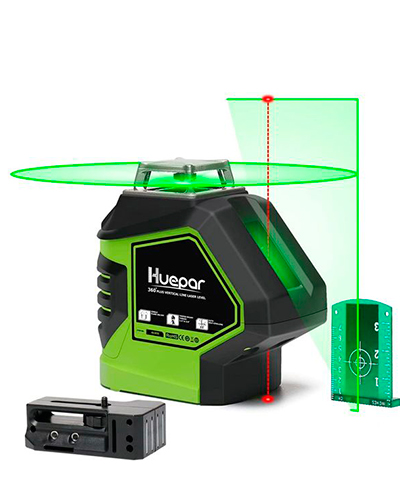
For versatility, this laser level projects a 360˚ green laser from the top, as well as a line that can be projected from one side. Designed for tripod mounting, it can reach the floor and ceiling.
Read more below ↓
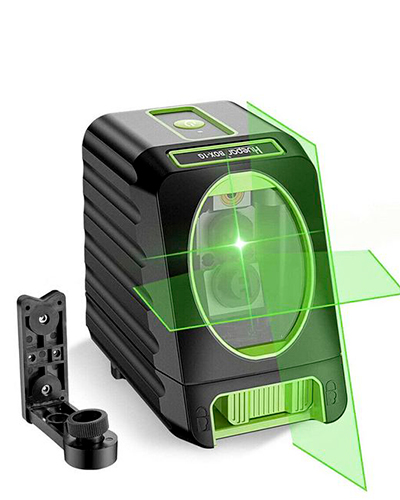
This great-value laser level can tackle a range of scenarios. As well as a self-leveling pendulum, there is a lock for manual mode, so you can take on stair laying and other tasks involving angles.
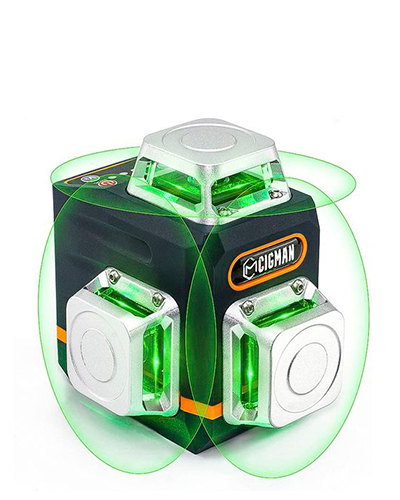
This is quite small for a 3-plane laser, but we found the CM-701 to be a powerful device and one of the cheapest available in the rugged professional category.
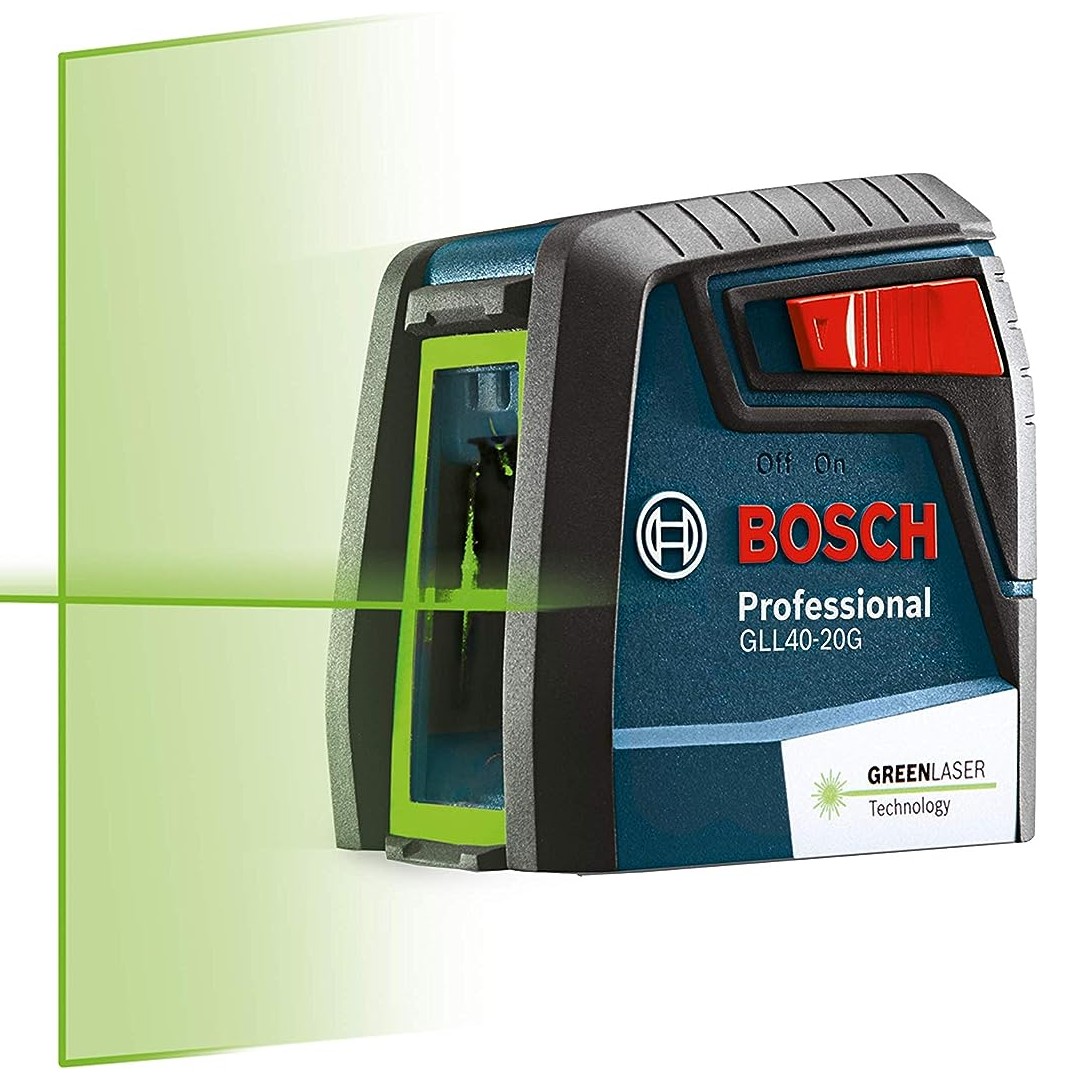
The GLL40-20G generates green lasers that are visible at up to 40ft in standard working conditions. Go beyond 4˚ and the internal pendulum will lock for protection, so the lines can be used for angles.
Read more below ↓
The best laser levels
Why you can trust Digital Camera World
The best laser level for most people
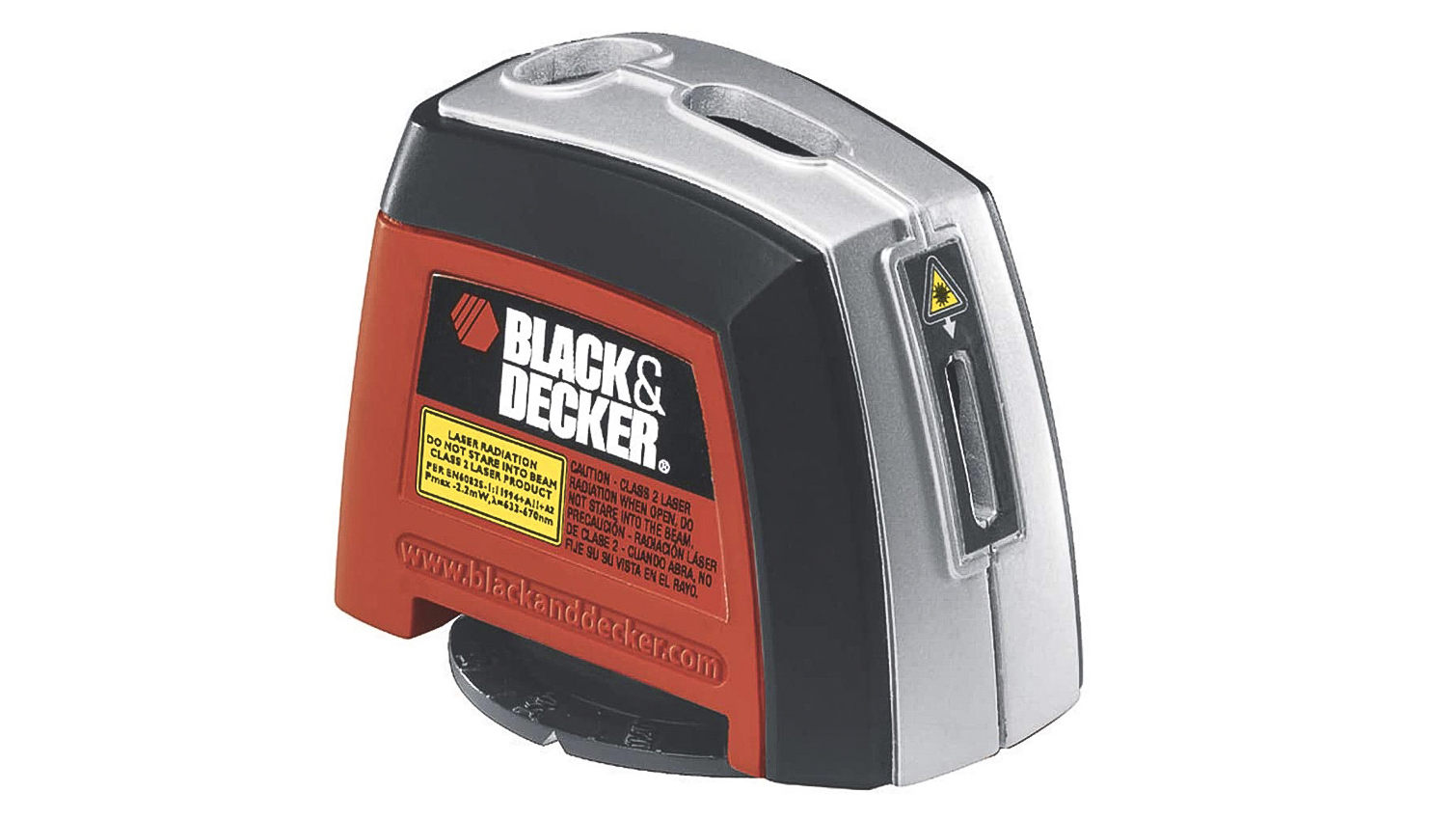
1. Black & Decker BDL220S
Our expert review:
Specifications
Reasons to buy
Reasons to avoid
For many everyday DIY tasks, like hanging pictures, mirrors, curtain rails, and other décor, all you need is a single laser beam, which is what this handy little tool offers. It does it in a pleasingly familiar form, too, looking a little like an overweight traditional tape measure, though it sits upon a rotating attachment so you can let go of it and direct it to your chosen angle (at the expense of a tac-hole).
Compared to other levels, the range is relatively low. We think that makes this device better suited to DIYers, hobbyists, and those doing tasks that don't involve anything very far beyond arm's reach. For most home tasks, we found it to be quite powerful enough. Indeed it may even do well for more unusual tasks such as standing in for a ruler to help organise elements of a montage without pencil lines.
The best cheap laser level
2. Hychika 50-Foot Laser Level
Our expert review:
Specifications
Reasons to buy
Reasons to avoid
Short on cash? Then here's a real bargain for you. Despite the low price, the Hychika laser level has a lot to offer. It produces bright horizontal, vertical or crossed lines up to 50 feet. It self-levels within 4 degrees and has over 20 hours of battery life. And while it's not quite as accurate as pricier models, it's certainly light enough for light DIY tasks like hanging shelves or making sure pictures are straight.
Other positives included the self-leveling, dual laser lines, included magnetic mounting bracket and long battery life. Cons include slightly unclear instructions, difficulty seeing the beam outdoors/in bright light, and the fact that's it's not precise enough for demanding or professional jobs. Overall, though, this is an affordable, capable laser level well-suited for basic around-the-house leveling needs.
The best laser level for features
3. Huepar 16 Lines Self-Leveling Laser Level S04CG
Our expert review:
Specifications
Reasons to buy
Reasons to avoid
If you want a laser level that's absolutely packed with features, then the Huepar S04CG will be just up your street.
This multifunctional laser level boasts four 360-degree laser lines for comprehensive leveling tasks. Two horizontal lines, one for floors and one for ceilings, are useful for tasks such as floor tiling and installing ceiling installation. Vertical lines at 90-degrees to the horizontals help you quickly square layouts. A self-leveling function ensures accuracy, with an LCD screen displaying battery life, lock status, and tilt angles.
Green lasers offer better visibility indoors, and a pulse mode extends the working range for outdoor use. The S04CG comes with an IP54 dust and water resistance rating, and its magnetic base allows for easy attachment to metal surfaces.
It's also superflexible. I love that, for example, it can be powered by either lithium-ion battery with USB-C charging, or AAs, and that you can use either the remote control and app connectivity to control the visibility of the laser line. There's a pulse mode with detector sensor for when you're using it outside in bright light, it displays the tilt angle so you can avoid going out of self-leveling range. And you even get the ability to lock the laser at a desired slope for grading applications.
The best laser lever with stud finder
4. Black+Decker Line Laser BDL190S
Our expert review:
Specifications
Reasons to buy
Reasons to avoid
We think this is a great choice if your prime need for a laser level is to hang pictures on walls, and you're not sure what's in those walls. It includes a stud finder, which we found to be ideal for avoiding wood or metal studs, not to mention live A/C wiring before hammering in a nail.
Other than this feature, this is a very simple device. Like the Black & Decker BDL220S above, it provides just a single, self-leveling line. But it does have an LCD screen, and it can attach to the wall via a small pin, which can be handy. All in all, we found that it does what it needs to reliably and efficiently.
The best laser level for home carpentry
5. Bosch GLL25 Quigo
Our expert review:
Specifications
Reasons to buy
Reasons to avoid
The quirky cube-like design of this cross-line laser level from Bosch, and the handy adjustable clamp it is usually sold with, make it an excellent tool for DIYers who want a simple solution that provides dual-axis beams. As opposed to the first two devices on our list, this can project a vertical axis as well as a horizontal beam, allowing us to find perfect right angles without needing to faff with a manual plumb bob.
We thought the included mini grip stand on the bottom was handy since it can grip a post from 1-5cm thick. That means you don’t need to worry about whether it’s a ferrous metal – very useful if you want to use your step-ladder as a support. The slide-down cover for the optics also locks the pendulum, meaning this tool is well protected against a clumsy owner too.
Green lasers are brighter and easier to see in direct sunlight than red ones. This red laser isn't an option for working outdoors in bright sunlight, but for indoor work, it's a solid, well-built choice that should provide years of reliability. If you want a green-laser equivalent, your might want to consider the Bosch GLL40-20G further down in our list.
The best portable 360 laser level
6. Huepar 621CG
Our expert review:
Specifications
Reasons to buy
Reasons to avoid
Basic laser levels like those we've included so far are great for putting up a shelf or another task where you're working at arm's length, but they have their limitations, which become apparent if you're trying to line something up in a position that you can't reach. As a 360-degree laser level, the 621CG is more versatile since it can project a cross-line around the room in different directions at once.
Designed with tripod-based operation in mind, it can project 140˚ to reach the floor and ceiling. Pendulum auto-leveling is included, and this can also be locked for angle work. An additional touch is an up/down red laser, which can act like a plumb line, projecting red dots above and below itself.
We found this to be nicely compact and portable while the dustproof build feels solid and durable. While some might prefer a rechargeable device, the 4xAA batteries are easy to source. We also appreciate the inclusion of the removable magnetic mount.
The best value 2-axis laser lever
7. Huepar Box-1G
Our expert review:
Specifications
Reasons to buy
Reasons to avoid
We found that the Box-1G can tackle all the same scenarios that other cross-beam lasers can, and it benefits from a bright 510nm “Green” laser. As well as the self-leveling pendulum, which like most works within 4˚, there is a lock for manual mode, so you can take on stair laying and other tasks involving angles.
We found that four batteries last for four hours of continual use. That's better than some rivals, and you can cycle through the beams with the power button to extend that time or swap the batteries with no charging if needed. Adding to the value, a magnetic bracket that screws into the standard tripod mount is included. For many tasks, there's no need to spend more.
The best value 3 x 360° laser level
8. Cigman CM-701
Our expert review:
Specifications
Reasons to buy
Reasons to avoid
Though it’s quite small for a 3-plane laser, we found the CM-701 to be a powerful device and one of the cheapest available in the professional category. It has a built-in battery with USB-C charging, and the turret design packs 360˚ lasers in all three axes: 1 x 360° horizontal line and 2 x 360° vertical lines all around a room.
Customer reviews vouch for this for everything from putting up kitchen cabinets to lighting and paving patios. To reduce the drain on the battery, each laser can be individually switched off via its own button on the case. This is more useful than you might think: no multiple presses to cycle through the lasers (though the four brightness levels are all accessed via the power button).
The included remote control can also be used to switch off the lasers so they’re only drawing power as you work, and without the risk of moving the device if it’s staying in place using the magnet bracket. Also included are a precision adjustment tripod and a reflector, so you get a full package for around a third of what some better-known brands charge. The screw holes will allow use with both a camera tripod or a transit tripod.
The laser isn't the brightest we've seen, and you might need a laser detector target for use outdoors if your target is not in the shade. The build is less rugged than more expensive brands too, but for this price, we think this is hard to beat.
The best laser level for working in bright light
9. Bosch GLL40-20G
Our expert review:
Specifications
Reasons to buy
Reasons to avoid
We already mentioned this laser level's cheaper red-laser cousin, the GLL30 above. We think that option offers the best value for indoor use, but a red laser is difficult if not impossible to see outdoors in bright sunlight. So if you're working on garden furnishing, a bright, green cross-line laser level is the way to go.
Bosch says its VisiMax technology is visible at up to 40ft in standard working conditions. Go beyond 4˚ and the internal pendulum will lock for protection, meaning the lines can be used for angles.
On the downside, there's no option to choose just one of the lines: you have to use both at all times, which can drain the batteries faster than might be necessary. However, this is well-built and Bosch includes both a bag and one of their flexible mounting devices which can screw into the laser’s tripod mount and clamp onto – well, it depends on what you’re working with, but you’ll find something.
The best laser level for durability
10. DeWalt DW089K
Our expert review:
Specifications
Reasons to buy
Reasons to avoid
While it might not have the snappiest of names, the DW089K is a rugged laser level that's built to last even with tough treatment on construction sites. It has an almost over-molded design that think could certainly take a drop or two without risking the laser. It is effectively one big roll cage. Use is also straightforward on-site, with the one-button-per-laser operation and an easily gripped big knob allowing for precise adjustment of the intersecting lines (or easy re-direction to the next wall).
It's a red laser rather than green, so this is for indoor use, but it is brighter than other red lasers we've seen. A low battery indicator on the side is a useful addition, though you should easily get a day's use out of the device. We also like the clarity of the diagrammatic buttons. DeWalt is also to be praised for its typically rugged kit box, though the IP20 build implies the DW089K is not waterproofed.
How to choose the best laser level
The right laser level for you will depend on what you want to use it for and what kind of budget you have. These two factors go hand-in-hand to an extent since there's no need to buy an expensive laser level designed for super precise site work and surveying if you'll only be using it to put up a shelf at home.
There are several types of laser level, so you'll need to consider what type of laser you need (manual or auto-levelling, a single horizontal line, a cross line or a 360˚ level (see below for more on the different types of laser levels). Other factors to consider are durability and build quality, which are more likely to be of importance if you'll be using the level outside or taking it to different locations where it can face more wear and tear. For these situations, water and dust resistance can be worth paying more for. You'll also want to consider the type of battery that the laser level requires.
For most everyday home use, the best laser level is usually a single-line laser or double-axis laser level. However, 360˚ lasers are more versatile for bigger jobs like mounting kitchen cabinets or laying tiles or paving. Another thing you will notice is that there are red and green laser levels. Green laser levels are much brighter, which makes them easier to see if you're working outdoors in bright sunlight.
How we tested the best laser levels
We chose the laser levels in this guide after evaluating a wide range of options, considering their features, build quality, reliability and pricing. We also took into consideration customer reviews to get a good idea of how well each laser level performs in the long term. The aim was to choose the best laser level for different needs, from basic home DIY to more specific requirements, such as outdoor use and surveying work.
FAQs
What are the different types of laser level?
Laser levels come in two broad categories. There are manual laser levels, where you direct the line at any angle to suit your needs, and auto-leveling laser levels, in which an internal pendulum mechanism ensures that the projected lines are perfectly horizontal or vertical if you get the device within a few degrees. The latter eliminate the need for finding somewhere to hang a gravity-dependent plumb line. The mechanism can sometimes be locked should you need to project a line at an angle, and you can usually switch to manual when needed.
The usual type of laser level for everyday home DIY is a single horizontal line laser or dot laser. These allow us to find a horizontal or vertical plane by projecting a beam of light 180˚ horizontally vertically. Dot lasers are similar but produce a dot, or multiple dots, instead of a line, to show you when it is level. There are also two-axis cross-line laser levels, which can help mark right angles without needing a plumb bob, and the are 360˚ laser levels, which project lines around the room.
There are also professional grade laser levels, which are highly accurate rotating lasers designed for use on construction sites and very specific types of laser level, such as pipe levels, but these kinds of laser levels are not the subject of this guide.
Do laser levels require accessories?
Some laser levels do require accessories. Almost all will require batteries (we recommend choosing from the best rechargeable batteries). In certain situations you may need a tripod to provide a level base, and, if you are working in a large space you may need a laser line detector, which can provide acoustic or optical signals to make it easier to locate laser lines.
How to I use a line laser level?
A line laser is the most common type of laser level for home use. You set it up on the flattest surface you can (a tripod can help here) and make sure it is level, either manually or automatically depending on the type of device. You can then use the level to measure and mark your surface as required to create a level line for reference.
The best camera deals, reviews, product advice, and unmissable photography news, direct to your inbox!

With over 20 years of expertise as a tech journalist, Adam brings a wealth of knowledge across a vast number of product categories, including timelapse cameras, home security cameras, NVR cameras, photography books, webcams, 3D printers and 3D scanners, borescopes, radar detectors… and, above all, drones.
Adam is our resident expert on all aspects of camera drones and drone photography, from buying guides on the best choices for aerial photographers of all ability levels to the latest rules and regulations on piloting drones.
He is the author of a number of books including The Complete Guide to Drones, The Smart Smart Home Handbook, 101 Tips for DSLR Video and The Drone Pilot's Handbook.
